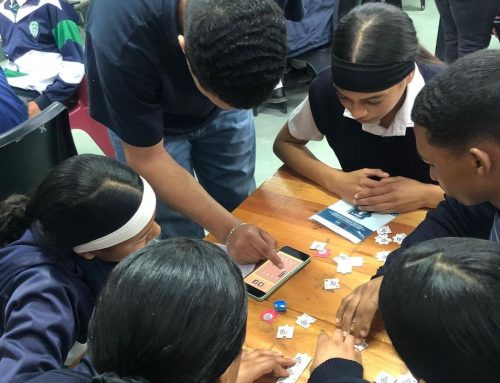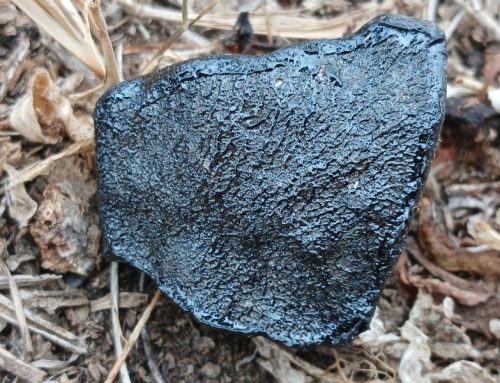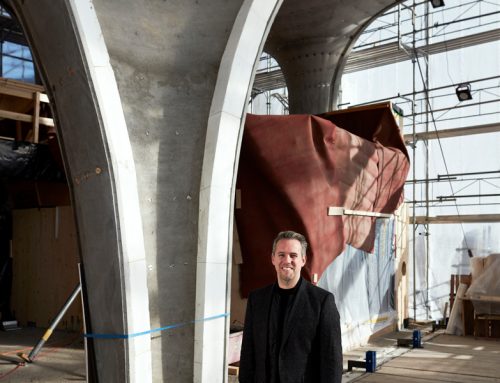 “I did not want to be a builder,” Hamilton Wende explained as he leapt onto the arm of the couch in his writing den and reached up to the pelmet to retrieve a photo of an Afghan soldier in the mountains of northern Afghanistan.
“I did not want to be a builder,” Hamilton Wende explained as he leapt onto the arm of the couch in his writing den and reached up to the pelmet to retrieve a photo of an Afghan soldier in the mountains of northern Afghanistan.
The photo and Wende’s lack of desire to become a builder bear some relation to each other. Wende’s success as a novelist, television producer and war correspondent, covered the costs of the extensive building alterations to his home in Parkview, including the construction of his writing den.
“I initially studied building science at Wits, before dropping it for English literature, drama and film. I knew that I did not want to be a builder, but it has certainly helped me to plan the renovations and supervise the builders,” he smiled; landing back on the floor, photo in hand.
Wende rarely does one thing at a time. His ability to multi-task, always dipping into several subjects at a time, has been the source of his aptitude for matching seemingly unrelated details to conjure a masterful plot, as attested by his latest novel, House of War, published last year.
“It all started with this photo,” he explained. “I took it in northern Afghanistan in October 2001, just after 9/11. It was a highly charged time because none of us knew whether world war three would break out.”
Considering this, he was certainly not thinking about novels when he took the photo of the northern frontier Afghan soldier, which became the cover image of House of War.
As he took the photo, the soldier tapped on the rock where they stood and said: “Iskander, Iskander”.
“Iskander means ‘Alexander’, and it made no sense to me until I returned to Johannesburg and went to the Ernest Oppenheimer Science Library at Wits. It is wonderful to be a Wits alumnus because you have access to this incredible resource.
“Here I found a 1982 copy of Scientific American where it talked about a lost city in northern Afghanistan founded by Alexander the Great. Flipping through the photos, I realised I was looking at the same mountains where I had taken the photograph. The article featured photos of pieces of sculpture and coins from this city, which was destroyed by barbarian invaders from the east. It was a fantastic ‘eureka moment’ that led me on the journey towards House of War.”
The process of writing a novel is always a journey, along which, as Wende explained, “You need to trust your subconscious and your unconscious when ideas surface, even ideas that seem quite audacious. For example, an idea that came to me is that one of Alexandra’s royal diaries might have been hidden here 2 500 years ago.”
He ran with it, and thus was House of War born. It is his sixth book, and from conception to published work (Penguin) it took four years.
Adopting this same puzzle piece approach, Wende is now researching mining in the Congo for his next novel, the working title for which is ‘Only The Dead’.
“Basically it is about a warlord in the Congo who, it goes without saying, is up to no good. The novel starts like this…’ he said producing fistfuls of scraps of paper with notes on them. One said: ‘Paddy’s Bar’.
“Paddy’s Bar is actually in Sierra Leone. All the mercenaries used to meet there and I have been there so it is alive in my mind. It’s a good setting and I might move it to the Congo for a scene in Only The Dead,” he explained.
Having covered fifteen wars in Africa, Wende is never short of dramatic settings and scenes. “They are often based on authentic places, the characters are often based on people or types of people I have met and, on occasion, on parts of me. Sometimes I just make things up. The sex scenes, especially, are made up,” he smiled.
His protagonists are generally a combination of fiction and reality. Susan, the leading woman in his next novel is a work in progress. “She is a psychologist, but I am thinking of developing her into a psychologist who studied lion mythology.”
Susan will head for the Congo in search of guardian lion relics, where she gets caught up in the world of the warlord. Perhaps.
Whatever form the plot takes, we can rely on Wende for cracking narrative of the highest order, and look forward to its fruition. If his previous books are anything to go by, and he has written several, including House of War, The King’s Shilling and Deadlines from the Edge, his next book will attract a wave of readers.
“I don’t know who my readers are, but I am glad they are,” he smiled. “When I write I don’t think of who is going to read me, I write what I think is interesting.”
If Wende finds it interesting, you can be sure it is so, for, as Bryce Courtenay said of him: “He combines the talents of a master storyteller and a hard-nosed foreign correspondent.”
The logistics of combining them requires him to work on his novels early in the morning, before he starts his ‘day job’.
His day job is to produce documentaries for international television networks and to write columns and articles for local and international media.
With so much on his plate, it is evident that the boy from Buffalo has made good.
Born in Buffalo in up state New York on the Canadian border, he came to South Africa when he was five years old, with his mother, Candy, and her second husband, John Rivett-Carnac, a South African.
“In John I could not have wished for a better father,” Wende said. His blood father died when Wende was thirteen; requesting that he retain his surname, which he has done.
“South Africa is my home and my family is here, but I also really like America,” he said. “Buffalo is a wonderful place with wonderful people, and I consider it my second home.
“F. Scott Fitzgerald, who lived his boyhood in Buffalo, described it as one of those places where a single house has been in the same family for generations.”
While pondering history and origins, Wende walked over to the revolving bookshelf his stepfather gave him for his 40th birthday eight years back. “I’m looking for ‘The Great Gatsby’,” he said.
It is curious that Wende crossed the oceans before becoming acquainted with Fitzgerald, despite the connectedness of their lives. “My grandfather, also Hamilton Wende, was Fitzgerald’s best friend in Buffalo,” he explained.
“I was in high school at St Andrews in Grahamstown when I first read ‘The Great Gatsby’. It offered a world apart from the freezing winter of the Eastern Cape and it had a profound effect on me. It opened my eyes to possibility.”
One day Wende’s novels might rake in the millions, as Fitzgerald’s did (alas, only after his death), but if this happened for Wende while he is alive and strong, he would continue working as a journalist.
“I love the interesting experiences you have as a journalist and as a member of a television team,” he said. “At the same time I love the solitary experience of being a writer.
“As I grow as a writer, I find myself moving away from a more autobiographical approach to relying on my imagination. It is very rewarding to successfully imagine other people’s lives. It expands your world.”
He knows he has imagined them well, when his wife, Lianne Lattimer-Wende, points out people in the airport or on television who make excellent matches for his characters.
“I bounce characters off Lianne, her sisters and my Mom. It’s very exposing, which is why I don’t share my characters until I am ready. It’s dangerous to show people too much too soon, because you need to have developed trust in your characters first. To build trust in your characters, you need to be somewhat gentle on yourself. Revealing them too early, even to those closest to you, can be detrimental to the writing process.”
Wende is a great proponent of family and marriage.
“Marriage and family grounds you, it is incredibly fulfilling and it is important for me to take the hopes and needs of those closest to me into account, which is what it is all about.”
His sister, Candace Rivett-Carnac, a production manager for etv, introduced him to Lianne in 2006. “Family knows best,” he smiled, “She had to drag Lianne along to meet me. It was that classic old line: ‘You have to meet my brother’. I don’t know what Lianne thought of me at that first meeting, but I immediately recognised something very special and valuable in her.”
Marriage and a home with Lianne and their two children (from her first marriage) have transformed Wende’s life. “I hope I can be as good a stepfather to Caitlin (13) and Nicholas (11) as my stepfather has been to me,” he said.
“I really enjoy spending time at home with my family, and no longer want to be forever heading to the next war zone. I spent so much time in hotel rooms by myself, and so much time in war zones that I have done my time. I can still get ‘the’ call to go into a war zone, but I am no war junkie.
“I have never been a destructive person or had a need for adrenaline. I have covered everything from the genocide in Rwanda to the violence in our townships. It was gripping and it gave me the chance to be part of the history of our time, and to bear witness to it. Fortunately I have never killed anyone so I don’t bear that guilt. At the same time I do not judge soldiers who have killed in war. I will examine this in Only The Dead.”
He hopes to have finished writing it by the end of 2010, after which the protracted editing process begins. In the meantime he can enjoy the lingering accolades from House of War and the incoming royalties.
Asked where he would like to be ten years from now…
“An internationally best-selling author,” he smiled. “If you are talking location, I think I would like to be right here in our renovated house in Parkview. My parents live down the road, my primary school (The Ridge), Wits and the South African offices of the international television networks with whom I work, are all up the road. What this all means is that even though I sometimes think I have traveled pretty far, I am always in the same valley. For how long this might be, I do not know.”




